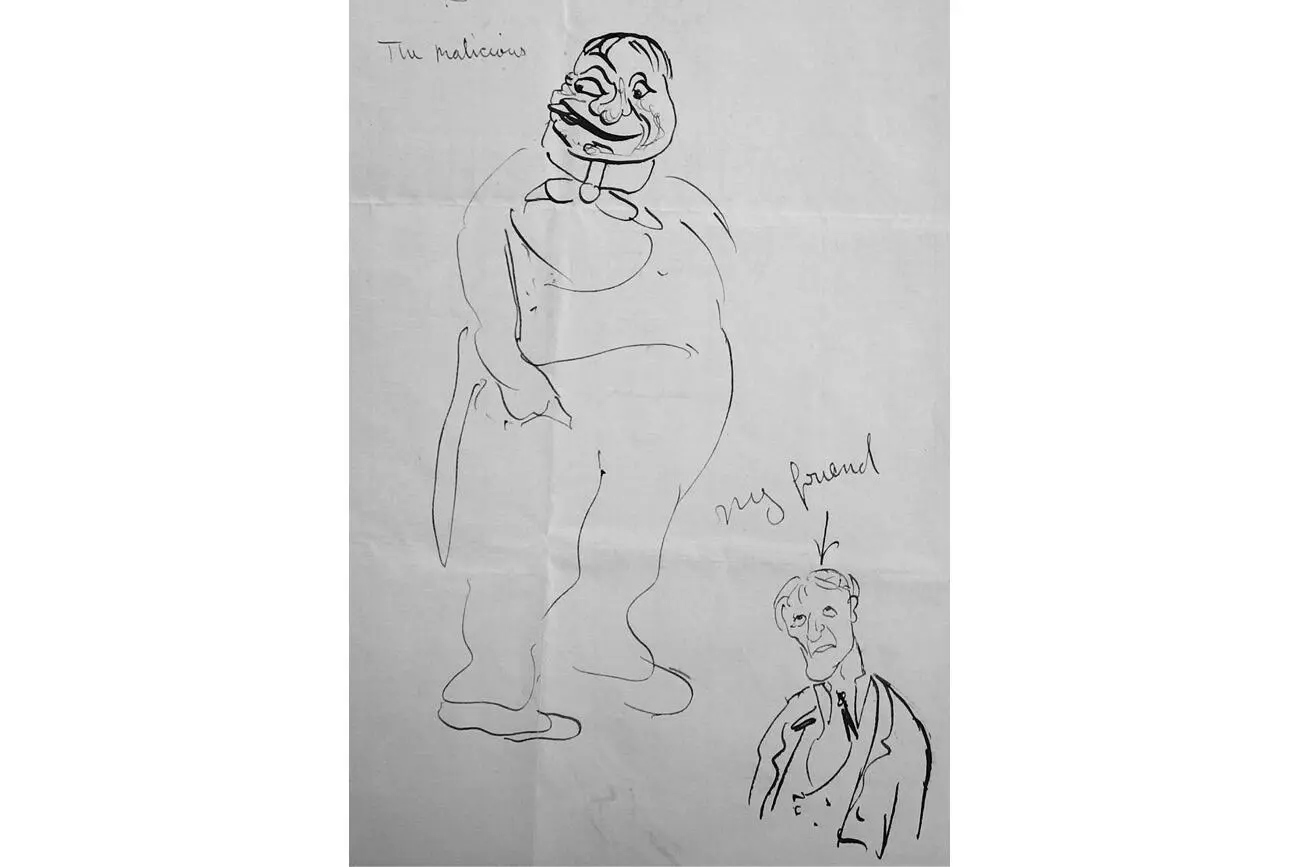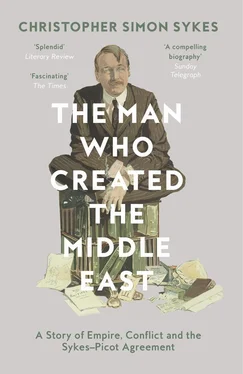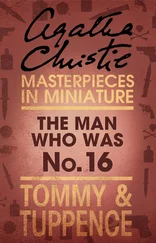or tell a yarn with anyone. 8
Back in London, on April Fool’s Day, he took a friend to dinner and a play. ‘I had great fun before the play,’ he told Edith.
I have a little friend not a bad fellow, but an esthete [ sic ], who is very decadent in fact. Likes Burne-Jones pictures, Aubrey-Beardsley [ sic ], Ibsen plays, Revolting French Novels, and only likes dining at the Trocadero Restaurant where the food … consists of Truffles and hot pâté de foie gras … I said dine with me at the Marlboro … after a little arguing he agreed, and came expecting rich filth, now for a punishment I ordered
Scotch Broth (with vast lumps of meat floating in it)
Boiled Turbot (fresh and enormous)
Beefsteak Pudding (Suety, wholesome, succulent, heavy, hot, crammed with Oysters, Lark’s Kidneys)
Boiled Oranges and Rice Pudding (a nursery dish)
Welsh Rarebit (in a dish the size of Lake Windermere)
Hard English Cheese and Brown Bread
Wines. Still Hock 1876.
Poor little thing, I believe you would have pitied him, he gasped at the Scotch Broth, gaped at the Turbot and the Beefsteak Pudding, words cannot describe appearance, his poor little decadent stomach fairly rose,
the effect of the huge dish of Welsh Rarebit I must leave to your imagination suffice that he staggered from the table almost speechless and the best of it is he cannot be revenged on me because I can eat anything. 9

All the while the negotiations between Mark’s parents were becoming increasingly frustrating: ‘things do not look so well as before,’ he wrote in early April, ‘as my father now says he won’t do anything before I return from the War because says he “I might be killed and then of course he wouldn’t have to pay anything at all.” This hardly strikes me as a very noble thought.’ 10The stress began to take its toll. ‘I have very little to tell you,’ he added, ‘but you’ll be glad to hear I am steadily losing flesh. I am now reduced to 12st. Have lost 6lbs.’ 11The greater the indecision, the more angry he became. ‘My father arrives tonight,’ he wrote a week later, ‘another struggle with him, tomorrow lawyers, another talk, the day after if all goes well an unsatisfactory settlement … a surly misanthropy begins to pervade my nature … I have never lacked bodily comfort and never experienced mental rest, for this reason am I misanthropic yet how can one help it the world is bad, vile, corrupt, and there is no remedy, socialism is ridiculous, Anarchy is futile, reforms bring no good, only stamp old evils to raise new. There is no Utopia, evil triumphs, religion is dead, honesty never existed … The whole world is a mass of individuals struggling for their own ends … here you have a party, some ends are gained and they break asunder and fall on one another, fighting, struggling, and the most noble calling of this vile race of mortals is the military, for it is for their mutual destruction.’ 12
Three days later, on the evening of 20 April, a solution was finally thrashed out at a meeting in the Metropole Hotel in London. ‘Oh my dearest co-religionist,’ wrote Mark, ‘At last it is finished. I’m sitting here writing to you, your photograph is in front of me – well it is all over. I must tell you me dear co-relig what happened … After arguing, fighting, changing, erasing, quarrelling, cursing, to-ing and fro-ing, the following arrangements were made.’ It was agreed that a mortgage of £100,000 should be raised to pay off the debts. From then on Jessie would receive an annual allowance of £5,000, from which a third would be deducted to help pay off the interest on the loan, while Mark would receive £2,000 per annum, out of which he would give his mother £500 annually. ‘At last it is done,’ he wrote, ‘and I start for S.A. tomorrow, thank God! Alhamdollilah! … Now I must say goodnight and goodbye, God willing I’ll see you at Cambridge in September, goodbye puella honesta et rara … Masalaam.’ 13
Mark boarded the RMS Norman on 21 April, his spirits high at having finally got away from his squabbling parents, but his heart tinged with sorrow at leaving Edith. ‘I felt a considerable sensation of misery when I recalled my last visit,’ he told her, ‘and thought how long it would be before I should see you again, and how long it will be before I even hear from you alas! … By the way I don’t think it I likely I am going to meet “the someone else” you are always so full of, at any rate on this steamer, here are all the female passengers.’
He went on to describe the majority of passengers as being ‘Jews of the most repulsive type, in fact it is for these beasts that we are fighting. They jabber about the mines all day long, I hope they will be made to pay. I would extort the last farthing from the most jingo loyal Jew in the British Empire before I’d fine a traitorous gentile.’ 14Such a shocking and sudden outburst of anti-Semitism needs to be seen in the context of the times when the need to blame someone for the war was sparked off by a series of early and disastrous defeats. These took place in the space of one so-called ‘Black Week’, at Stormberg, Magersfontein and Colenso, the latter being particularly crushing with the British suffering 1,137 casualties to the Boers’ 37. Sent to report on the war for the Manchester Guardian , the highly influential economist J. A. Hobson identified a small group of wealthy Jews, with influence in the British press and the British Cabinet, among them Alfred Beit and Julius Wernher, who, for the sole purpose of their controlling South Africa’s diamond and gold industries, had encouraged the Governor of the Cape Colony, Sir Alfred Milner, to take the belligerent stand that had led to war. It was the cause of a wave of anti-Jewish feeling.
Another figure with a vested interest in the war also happened to be on board, the multi-millionaire mining magnate and founder of Rhodesia, Cecil Rhodes, to whom Mark had been given a letter of introduction, ‘He is a large, ill-made, somewhat muscular man,’ he recorded, ‘there is nothing whatever striking about him except a certain nervous twitching and folding of the hands and arms which was I believe a characteristic of the great Napoleon. The annoyance which I felt when I looked upon this man was considerable when I thought of the misery and desolation brought about by his machinations. I could hardly restrain myself.’ His secretary expounded Rhodes’s views on how he saw the future of the Transvaal and the Free State as their becoming Crown Colonies. ‘Why could they not have a constitutional government?’ asked Mark. ‘Oh no,’ he replied, ‘because our enemies would be in the majority.’ ‘No comment is necessary on these words,’ wrote Mark, ‘it comes, to speak plainly, to the uncontestable fact that we are fighting to take away the liberty and independence of two Republics which are not even our colonies, this is the most monstrous admission ever made by any country in the last 100 years.’ In the course of a short conversation, however, Mark did find himself agreeing with Rhodes on one subject, ‘his unrestrained and open contempt for the stupidity of our generals’. 15
Mark finally touched dry land at the beginning of May, when Norman docked at Port Elizabeth, which, along with East London, was one of the ports in the Eastern Cape used for the landing of troops, horses and equipment, for transport by train to the front in the Northern Cape/Free State region. The tide of the war had begun to turn since ‘Black Week’ owing to heavy reinforcements having been sent out from home under the command of Field Marshal Lord Roberts, with Lord Kitchener as his Chief of Staff. The besieged towns of Ladysmith and Kimberley had been relieved, and in mid-March Roberts had occupied Bloemfontein, the capital of the Orange Free State. The week Mark arrived, the siege of another town, Mafeking, was almost over. It was to be a long time, however, before Mark saw any action. His first few weeks were spent guarding the harbour. ‘I look like this’, he wrote to Edith. ‘We are doing nothing and neither shall. Our Colonel is as foolish and incompetent as ever …’ 16
Читать дальше












